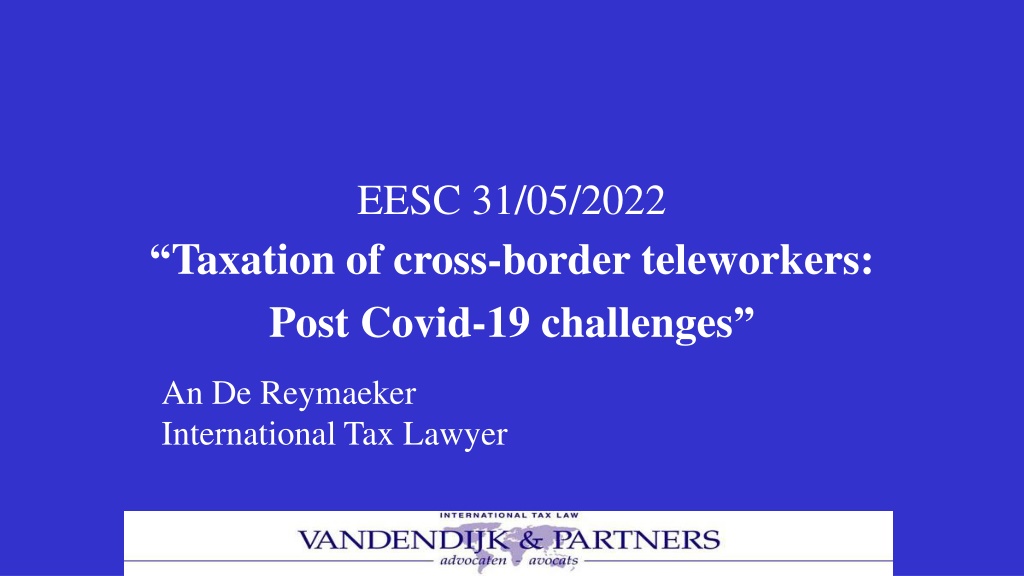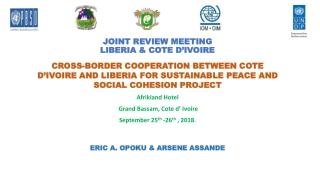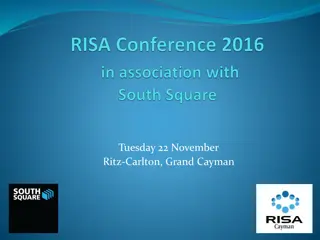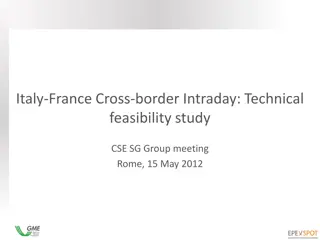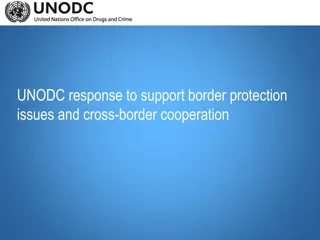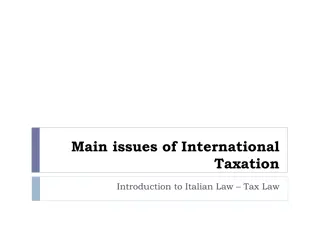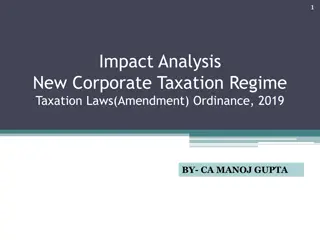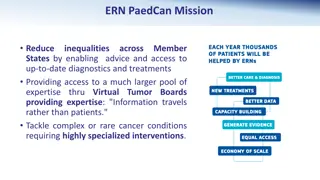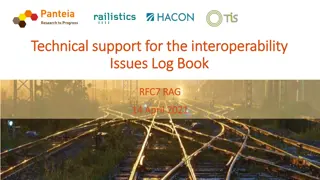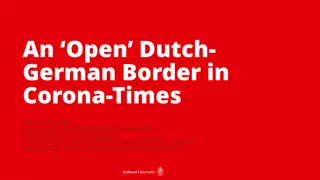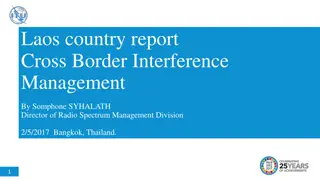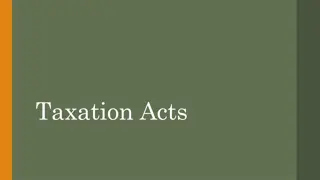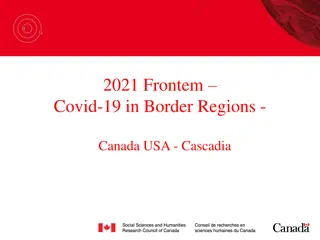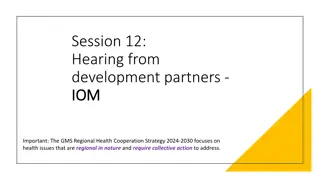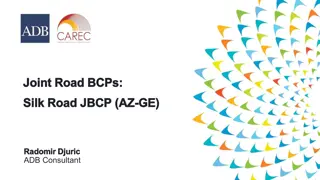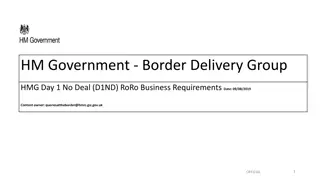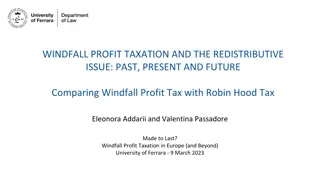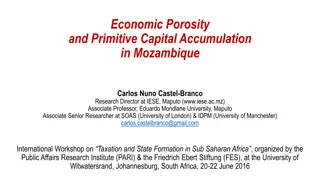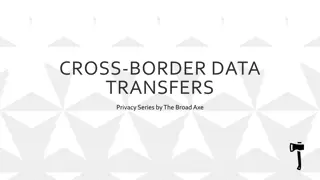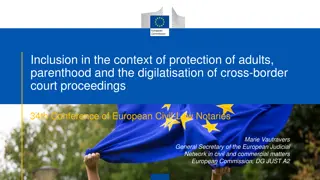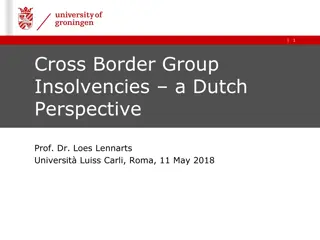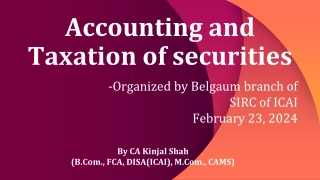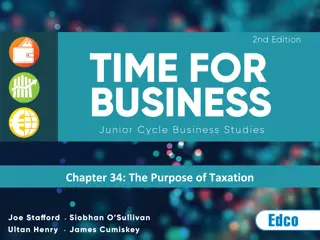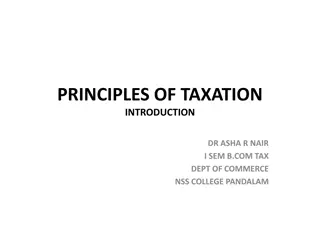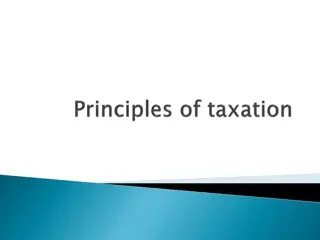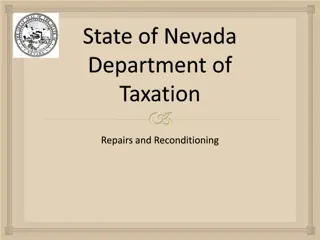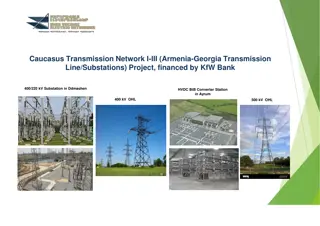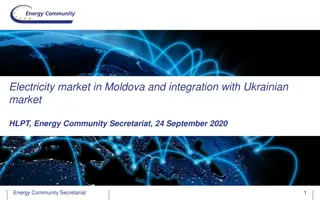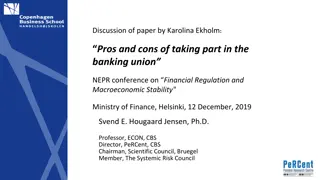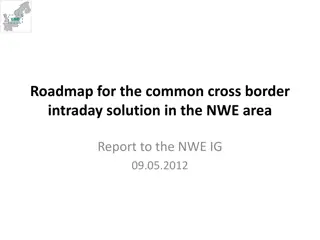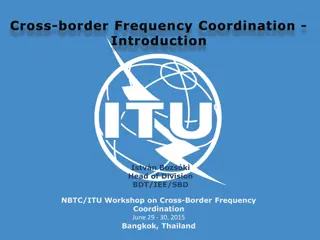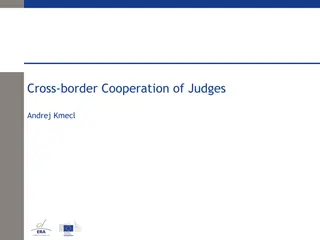Taxation Challenges for Cross-Border Teleworkers Post Covid-19
Challenges in international taxation arise for cross-border teleworkers post-Covid-19, especially regarding the taxation of income from employment under Article 15 of the OECD Model Tax Treaty. Issues such as physical presence, bilateral agreements during the pandemic, and future taxation scenarios are explored through examples of a Belgian resident with a Dutch employer.
Download Presentation

Please find below an Image/Link to download the presentation.
The content on the website is provided AS IS for your information and personal use only. It may not be sold, licensed, or shared on other websites without obtaining consent from the author. Download presentation by click this link. If you encounter any issues during the download, it is possible that the publisher has removed the file from their server.
E N D
Presentation Transcript
EESC 31/05/2022 Taxation of cross-border teleworkers: Post Covid-19 challenges An De Reymaeker International Tax Lawyer
Introduction Mobility of work : challenges after Covid-19 Telework and international employment/cross-border workers : new working culture (online meetings) Issues with regard to international taxation rules on income from employment : Article 15 of the OECD Model tax treaty
Article 15 of the OECD Model Tax Treaty Art. 15, 1 : Subject to the provisions of Articles 16, 18 and 19, salaries, wages and other similar remuneration derived by a resident of a Contracting State in respect of an employment shall be taxable only in that State unless the employment is exercised in the other Contracting State. If the employment is so exercised, such remuneration as is derived therefrom may be taxed in that other State. Taxation in work State under condition of physical presence Exception = 183 days rule (article 15,2 )
Article 15 of the OECD Model Tax Treaty Quid condition of Physical presence : Problems during Covid-19 pandemic (travel restrictions) Bilateral agreements made : for example between Belgium and neighbouring countries (NL, Lux, Germany, France) on the basis of force majeur : no changes in taxation situation (OECD recommandations 3/4/2020) Agreements will come to an end 30/06/2022 : Quid taxation of telework after that date?
Example Resident of Belgium; Employee with Dutch employer /employment contract (payroll/salary paid in NL); Different situations : 1) Before Covid-19 : worked physically 80% in NL and 20% in Belgium (at home) Taxed in the NL for 80% and 20% in Belgium (exemption with progression 80%) 2) During Covid-19 restrictions : bilateral covid agreement based on force majeure ; Taxed in the NL for 80% and 20% in Belgium : no change in tax situation even if no physical presence in the NL 3) After Covid-19 (end agreement B-NL on June 30,2022) : telework for 40% in residence State Belgium; Taxation in the NL for 60% and in Belgium for 40% + change in social security legislation as more than 25% in residence state : application of Belgian SS by Dutch employer
Problems/challenges after Covid -19 Telework will also continue for cross-border workers : if however nothing changes and condition of physical presence (art. 15,1) is still necessary, this will have consequences; For the personal taxation situation of employees (if tax rates higher than in residence state; lower net salary/War of Talent/complexity if tax returns need to be filed in different countries) Cost of labor for employers : administrative obligations, payroll, WH taxes Applicable social security legislation (EU Regulation 883/2004 art. 13 : if more than 25% in residence state/discoordination with taxation rules) PE issues (article 5 OECD model tax treaty)
Solutions ? On an EU level (OECD): - Adaptation/update needed of article 15 OECD with regard to the condition of physical presence : taxation in residence state of employee or in residence state of employer ? - Exception/tolerance to foresee for teleworkers for 1 or 2 days/week of time spent in country of residence for telework - Allignment needed with social security (EU Reg. 883/2004) and PE issues On the basis of bilateral agreements: For example : (1) BE Lux: 34 days exception/tolerance for days spent outside working state; (2) France : r solution of 9/3/2022 : proposal for 2 days/week telework without any tax or social security consequences
